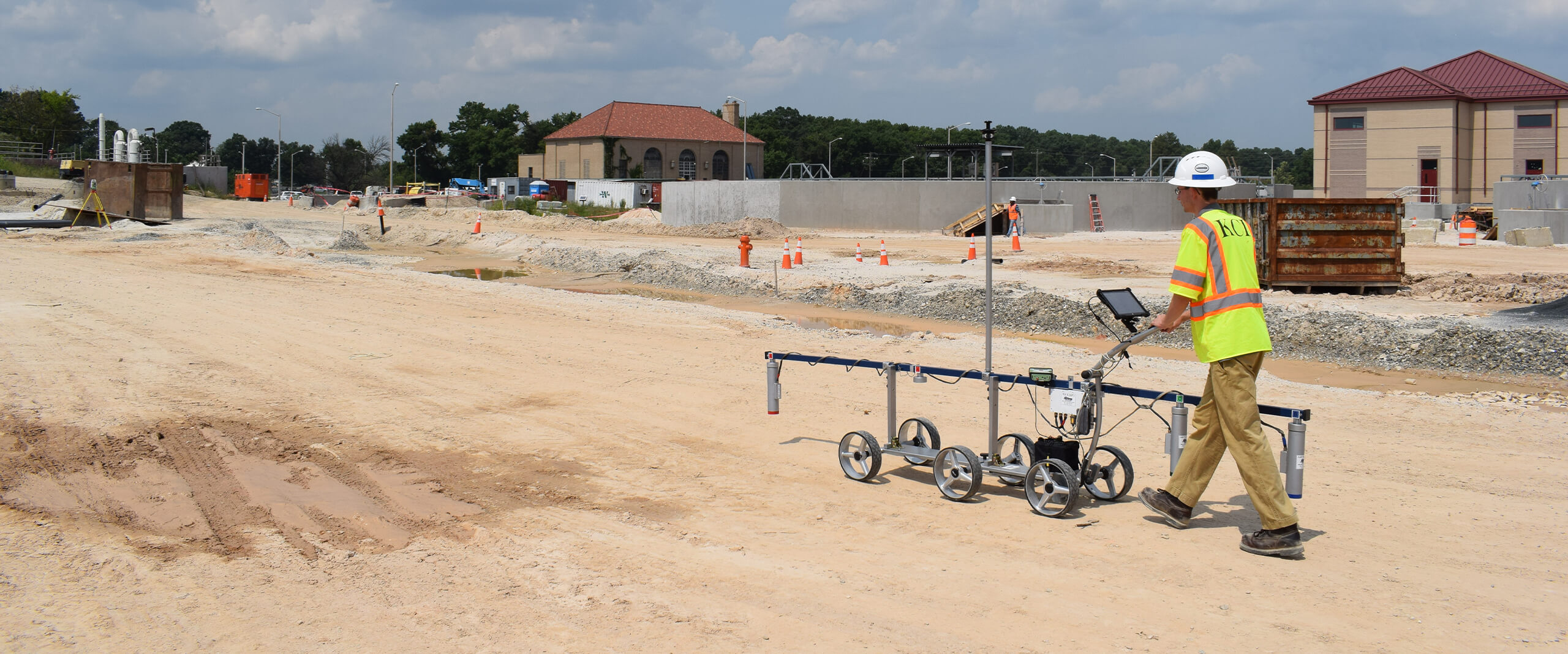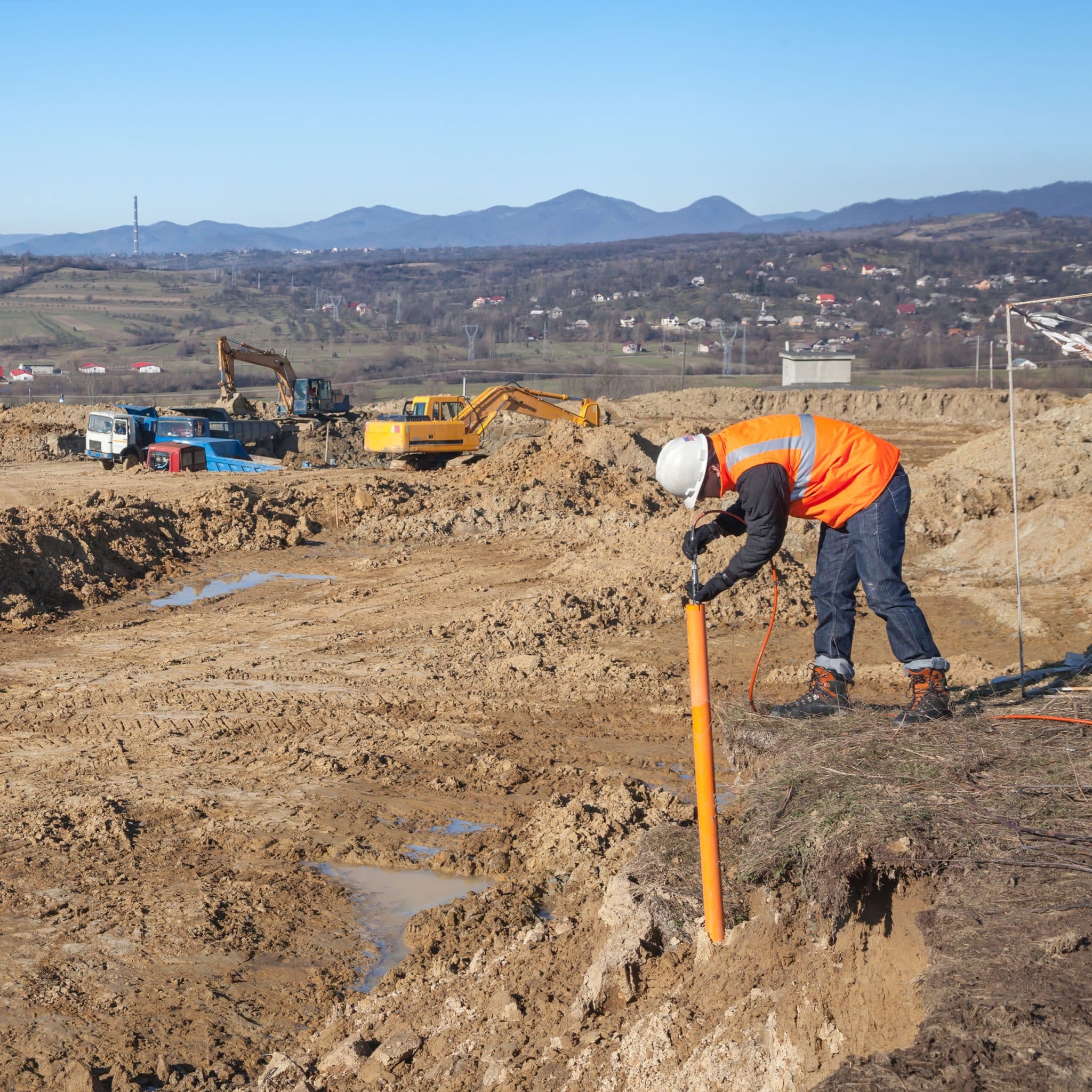A Complete Overview to Becoming a Successful Geotech Engineer
A Complete Overview to Becoming a Successful Geotech Engineer
Blog Article
Comprehending the Comprehensive Duty of Geotechnical Engineers in Ground Investigation and Dirt Evaluation for Building Tasks
Geotechnical engineers are essential to the success of building jobs, supplying crucial understandings through detailed ground examinations and dirt evaluation. Their proficiency in assessing soil actions and utilizing sophisticated testing methods educates crucial decisions that support structural stability and security.
Duty of Geotechnical Engineers
The pivotal function of geotechnical designers in building projects can not be overemphasized, as they supply necessary understandings right into dirt behavior and site problems. These professionals are charged with assessing the viability of the ground for numerous kinds of frameworks, making certain security and security throughout the building and construction procedure. Their competence includes a wide variety of activities, consisting of site characterization, dirt tasting, and research laboratory testing, which are essential for figuring out the physical and mechanical buildings of the soil.
Geotechnical engineers utilize their searchings for to establish foundational designs that fit load-bearing requirements and alleviate risks associated to dirt slope, negotiation, and liquefaction security. They play a crucial duty in determining possible dangers, such as groundwater changes and contamination, which can dramatically influence job feasibility. In addition, they work together with architects, civil engineers, and service providers to guarantee that geotechnical factors to consider are incorporated into the general design and building stages.
Ground Examination Techniques
Ground investigation methods develop the foundation of geotechnical design, enabling designers to obtain a comprehensive understanding of subsurface conditions. These techniques are important for examining soil residential or commercial properties, determining groundwater levels, and determining potential geological threats.
Usual approaches consist of borehole drilling, which permits the extraction of soil examples at various midsts, giving vital data for analysis. Furthermore, sitting testing methods, such as Basic Infiltration Examinations (SPT) and Cone Infiltration Examinations (CPT), are used to evaluate soil toughness and thickness directly in the ground.
Geophysical methods also play a considerable duty in ground investigations. Methods such as seismic surveys and electric resistivity tomography help assess subsurface attributes without comprehensive excavation. geotechnical industry. These non-invasive approaches are specifically beneficial in delicate or large locations where disturbance need to be minimized
Furthermore, exploratory trenches can be excavated to aesthetically evaluate soil layers and determine any kind of anomalies. Each of these methods adds special insights, enabling geotechnical engineers to develop precise site assessments and inform design decisions. In recap, a combination of these ground examination methods is essential for successful construction projects, making sure safety and security and structural honesty.
Dirt Evaluation Methods
Dirt evaluation techniques are critical for comprehending the chemical and physical buildings of dirt, which straight influence the layout and construction of foundations and various other frameworks. Numerous techniques are utilized to examine dirt features, ensuring that geotechnical engineers obtain exact information for educated decision-making.
One commonly used technique is grain size analysis, which figures out the circulation of fragment dimensions within a soil sample. This is vital for identifying dirt kinds and anticipating their habits under tons. An additional essential method is Atterberg limits screening, which assesses the plasticity and moisture content of fine-grained dirts, giving understandings right into their design residential properties.

Field examinations, such as Basic Infiltration Examinations (SPT) and Cone Penetration Examinations (CPT), deal important in-situ information regarding soil toughness and stratification. Collectively, these soil evaluation methods develop the structure of geotechnical investigation, enabling designers to design reliable and risk-free frameworks tailored to the certain problems of the site.
Danger Reduction Approaches
Executing efficient threat mitigation techniques is crucial for geotechnical engineers to resolve possible challenges in building jobs. These approaches are critical in determining, examining, and taking care of risks connected with soil problems, site security, and groundwater changes, which can detrimentally impact task end results.
One primary strategy involves conducting complete website investigations that utilize innovative geophysical methods and extensive soil sampling. By obtaining accurate information on subsurface problems, designers can make educated decisions on design view it now and construction approaches. Furthermore, employing anticipating modeling devices permits the simulation of different situations, allowing designers to anticipate prospective issues and execute preventive procedures.
In addition, developing clear interaction channels among task stakeholders promotes a collective approach to risk management. Normal updates and examinations ensure that all parties recognize the evolving site problems and can adjust their techniques accordingly.

Effect On Building Jobs
The efficiency of danger mitigation techniques directly affects the general success of construction jobs. Geotechnical engineers play an essential role in this domain name, as their know-how in ground examination and soil analysis notifies important choices throughout the building and construction procedure. By accurately evaluating dirt problems and identifying potential hazards, these professionals make it possible for task teams to develop effective remedies that minimize risks related to ground instability, water seepage, and other geotechnical difficulties.
The effect of comprehensive geotechnical analysis is noticeable in different aspects of construction tasks, including price administration, project timelines, and architectural integrity. Early identification of concerns enables timely treatments, reducing costly hold-ups and budget plan overruns. Additionally, a thorough understanding of site conditions improves the style and design process, making certain that structures are built to endure environmental stress and potential natural catastrophes.
Eventually, the contributions of geotechnical engineers are indispensable to the successful implementation of building and construction jobs. Their job not only promotes safety and security and compliance with policies yet also improves the lasting sustainability of structures, making sure that they perform efficiently throughout their designated life-span. The collaboration between other stakeholders and geotechnical teams is vital for attaining optimum outcomes in building ventures.
Verdict
Finally, geotechnical engineers do a crucial function in building jobs with comprehensive ground investigations and soil analyses. Their know-how in analyzing dirt actions, utilizing various investigation strategies, and applying danger reduction methods considerably contributes to the from this source architectural integrity and safety of constructed settings. By teaming up with multidisciplinary teams, these professionals enhance task efficiency and make sure conformity with safety and security requirements, eventually causing successful construction outcomes and decreased prospective threats.
Geotechnical engineers are important to the success of building and construction projects, providing vital insights through comprehensive ground examinations and soil analysis.The pivotal duty of geotechnical designers in building projects can not be overstated, as they offer necessary insights right into dirt behavior and website conditions. Their proficiency encompasses a wide variety of activities, including website characterization, dirt sampling, and lab testing, which are vital for identifying the mechanical and physical homes of the soil.
By accurately analyzing soil conditions and identifying prospective hazards, these experts allow task groups to create reliable remedies that minimize risks connected with ground instability, water seepage, and other geotechnical challenges.
In final thought, geotechnical engineers execute a critical function in construction additional info projects via comprehensive ground investigations and soil evaluations.
Report this page